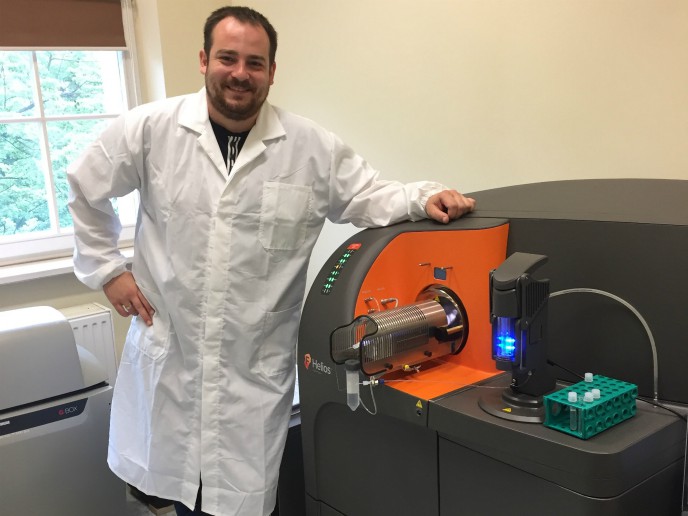One platform for multiple cancer biomarkers’ detection
Proteolytic enzyme levels in solid tumours or in some extracellular fluids are often elevated and comprise useful biomarkers for breast, colorectal and pancreatic cancers. However their precise role has yet to be determined. An innovative method for studying cancer enzymes To further understand the implication of proteases in tumour biology, scientists of the EU-funded PROVIST project employed patient-derived xenograft mouse models of cancer and then used the new analytical technique of mass cytometry to examine the expression of various proteases. During the research project, undertaken with the support of the Marie Curie programme, researchers synthesised chemical probes for the selective detection of various cancer-associated proteases such as caspases, legumain and cathepsins B, L and S. The innovation is that, these probes were labelled with stable isotopes of lanthanide metals, rendering them suitable for mass cytometry. Mass cytometry is a novel technology that allows for the simultaneous analysis of over 40 parameters in a sample. PROVIST replaced antibodies traditionally used for this purpose with small chemical probes which detect only the active form of proteases. To achieve this, they used the hybrid combinatorial substrate library technology developed at Prof. Drag’s lab at the Wroclaw University of Science and Technology in Poland. Advantages of the PROVIST platform As the research fellow Dr Marcin Poreba explains, “Our methodology overcomes current limitations associated with the parallel analysis of multiple proteases participating in cancer progression.″ Importantly, the PROVIST-generated probes addressed the overlapping substrate specificity across caspases and cathepsins. Furthermore, using metal isotopes with unique mass spectrum peaks instead of fluorophores for detection, the PROVIST approach eliminates the problem of signal overlapping and allows monitoring of more cellular parameters in one assay. The generated probes were evaluated on recombinant enzymes and in vitro in cancer cell systems. Then they were applied to study tumour cells ex vivo from xenograft mouse models, which offer an excellent opportunity to study human cancer biology. In addition, scientists synthesised and tested caspase inhibitors in cancer cells, validating mass cytometry as a suitable technique for the parallel monitoring of multiple protease activities in biological systems. Their future plans include application of these experiments in human blood samples to dissect the proteolytic cross-talk between cancer and inflammation. “Our long-term goal is to create a toolbox composed of chemical probes that will reveal the enzymatic landscape in cancer,″ emphasises Dr Poreba. This will help determine why some cancer patients do not respond to anticancer treatment, enabling physicians to personalise treatment accordingly to patient pathology. With cancer remaining one of the most devastating diseases, causing millions of deaths per year, the PROVIST toolbox comprising selective probes will help cancer-related studies. Dr Poreba is confident that “the PROVIST platform of chemistry, mass cytometry, and cancer models can help dissect medically important enzymes with important societal implications.″ Implementation of this platform will lead to a more accurate patient diagnosis and also to the discovery of new, more tailored and personalised anticancer therapies.







